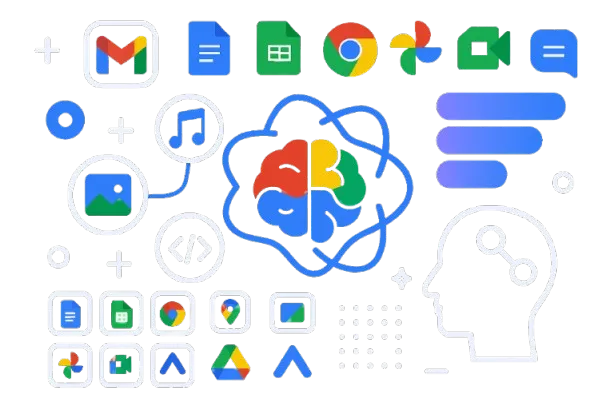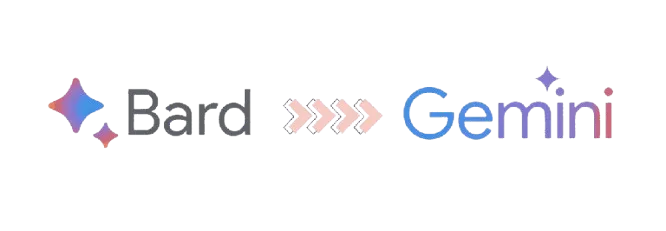Gemini Introduction
Overview
PURPOSE: Gemini is a generative AI assistant that can help users with writing, coding, understanding images, data analysis, and finding information. Gemini is a conversational, multimodal AI, meaning it can process text, images, code, video, etc.
PLATFORMS: Gemini is available as a web-based app, mobile app (Android and iOS), and is integrated into Google Workspace products like Gmail, Docs, Sheets, as well as being available on Android OS, ChromeOS, and WearOS (OS=Operating System).
Key Features of GEMINI
Multimodal processing of text, images, audio, video, and code
Available in multiple model sizes: Nano, Pro, Ultra, and Flash
Deep integration with Gmail, Docs, Sheets, Chrome, Photos, Maps, Meet, Drive, Messages, and Android Auto
Advanced reasoning, memory, and tool-based assistance through features like Deep Think and Project Astra


Background/History of GEMINI
Gemini started out as Bard in March 2023, as a conversational AI from Google, with the goal of competing with ChatGPT from OpenAI. It was initially based on LaMDA and later, PaLM 2. Bard became Gemini in December 2023, with the Gemini 1.0 model family. Google rolled out several versions, including Nano for on-device AI, Pro for commonly-used tasks, Ultra for complex reasoning, and Flash for a lot of fast but lightweight responses. By 2024 and 2025, Gemini has expanded to included AI features across Google's core products and their mobile devices. "From natural image, audio and video understanding to mathematical reasoning, Gemini Ultra’s performance exceeds current state-of-the-art results on 30 of the 32 widely-used academic benchmarks used in large language model (LLM) research and development."(Pichai & Hassabis). With the rollout of Gemini 1.5, Gemini 2.0 and more recently, Gemini 2.5 Pro, the tool now includes long-context understanding, visual and audio input, and tools such as Google Search and Google Lens. While Gemini is free, premium capabilities are available through Google One AI Premium subscriptions.

